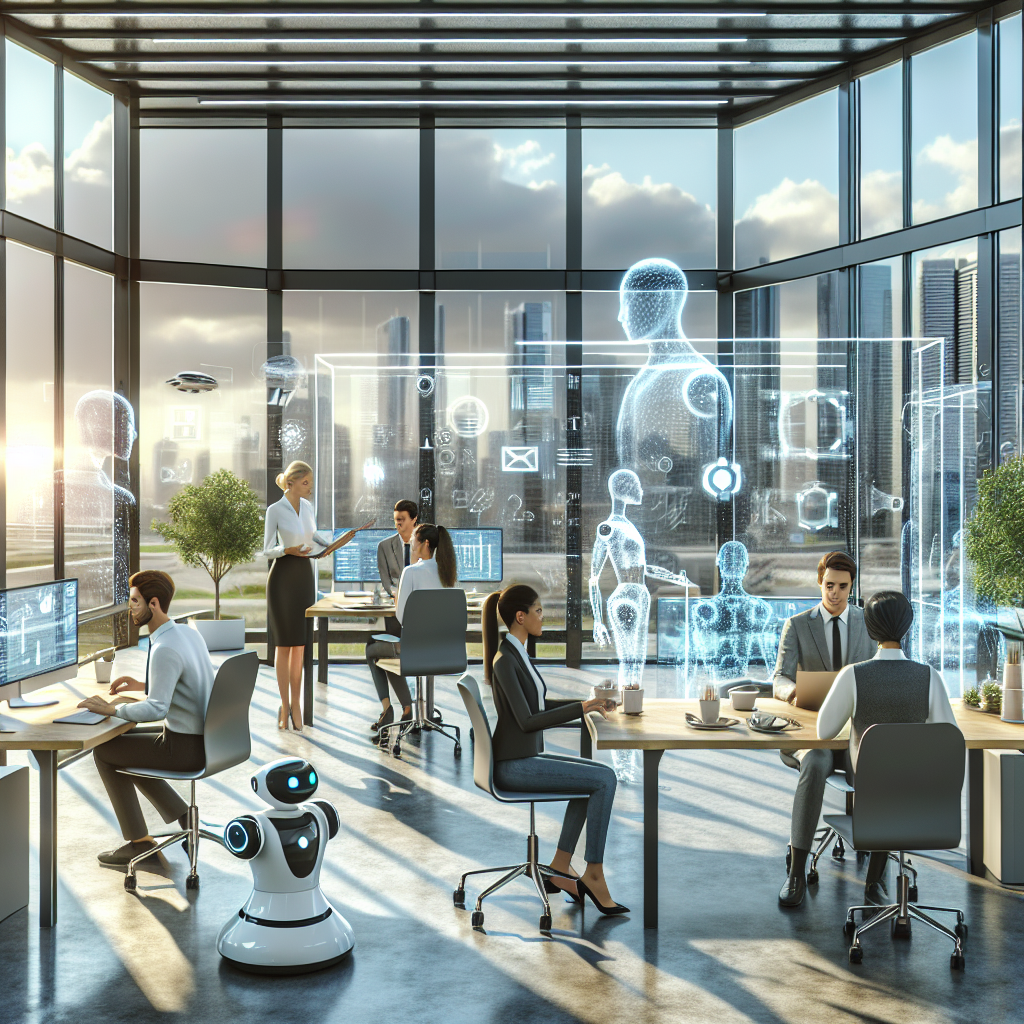Automation is no longer a futuristic concept; it’s transforming how we work today and reshaping the future work landscape by 2025. From manufacturing floors to corporate offices, intelligent machines and software are redefining job roles, productivity, and workplace dynamics. As businesses rush to adopt automation technologies, understanding how these changes will influence employment, skills, and career paths is essential. This evolution promises increased efficiency and new opportunities, yet it also raises questions about job displacement and workforce adaptation. Exploring these trends provides valuable insights into preparing for a future work environment shaped by automation.
The Growing Impact of Automation on Jobs
Automation technologies such as robotic process automation (RPA), AI-powered tools, and machine learning are becoming integral to workplaces. Their impact varies widely across industries but generally leads to increased efficiency, reduced human error, and faster completion of repetitive tasks.
Automation in Manufacturing and Industrial Sectors
Manufacturing has long been a focal point for automation, with robots performing assembly line tasks more precisely and safely than humans. By 2025, factories will widely deploy advanced robots capable of adapting to different tasks and collaborating with human workers.
– Cobots (collaborative robots) safely work alongside employees.
– Predictive maintenance powered by AI reduces downtime.
– Automated quality control systems ensure product consistency.
These transformations maximize productivity while reshaping factory jobs. Workers are transitioning from manual labor roles to oversight, maintenance, and programming positions requiring technical expertise.
Automation in Service and Administrative Roles
Beyond manufacturing, automation is revolutionizing office work. AI-driven chatbots, automated scheduling systems, and data-entry bots are optimizing customer service, human resources, and finance functions.
– Routine administrative tasks are automated, freeing employees for strategic work.
– Virtual assistants manage emails and calendar coordination.
– AI analytics tools generate insights to inform business decisions.
As routine tasks become automated, professionals need to develop skills in managing and improving these technologies, emphasizing creativity and critical thinking.
Shifting Skill Requirements in the Future Work Environment
With automation reducing repetitive work, the skills demanded in the workforce are changing drastically. Adaptability and continuous learning are becoming vital as employees navigate new tools and workflows.
Technical Skills for Operating and Collaborating with Automation
Many jobs will require familiarity with automation tools and the ability to troubleshoot and optimize them. Coding, data analysis, and machine learning basics will be advantageous.
– Understanding RPA platforms and AI integration.
– Skills in configuring and maintaining automation software.
– Ability to interpret data outputs to support decision-making.
Soft Skills Gaining Importance Alongside Automation
While machines handle routine tasks, human-centric skills become even more crucial, including:
– Complex problem-solving.
– Emotional intelligence for teamwork and leadership.
– Creativity to innovate and improve automated systems.
Companies are investing in reskilling and upskilling initiatives to prepare their workforce for these evolving demands.
Adapting Business Models to Harness Automation
Forward-thinking organizations are redesigning workflows and business models to fully leverage automation benefits.
Integrating Automation into Core Operations
Businesses are embedding automation across departments, not just isolated projects, to achieve end-to-end efficiency.
– Supply chain automation streamlining inventory and logistics.
– Automated customer relationship management (CRM) systems for personalized marketing.
– Real-time data monitoring enabling agile responses.
Leveraging Data and Analytics for Strategic Advantage
Automation generates vast amounts of data, which companies can analyze to improve products, services, and user experiences. Harnessing this data is central to future work success.
– AI-powered analytics uncover trends and forecasts.
– Machine learning optimizes sales and marketing strategies.
– Data-driven decision-making enhances competitiveness.
This integration requires collaboration between IT, operations, and strategy teams.
Preparing the Workforce for the Future Work Reality
Successful transition to a future work paradigm relies heavily on workforce readiness and organizational support.
Lifelong Learning and Continuous Development
With rapid tech changes, ongoing education is essential. Employers and employees must prioritize:
– Access to online courses and certifications.
– Workshops focused on emerging automation tools.
– Encouraging a growth mindset regarding technology adoption.
Policies Supporting Workforce Transition
Governments and companies are exploring frameworks to ease the shift, such as:
– Retraining programs for displaced workers.
– Social safety nets for those affected by automation.
– Partnerships between educational institutions and industry.
These initiatives help cultivate a workforce capable of thriving in a highly automated environment.
Ethical and Social Considerations in Automated Workplaces
Automation’s rise brings important ethical and societal questions that organizations must address responsibly.
Ensuring Job Quality and Fairness
While some jobs may be displaced, new roles should offer meaningful work with fair wages. Transparent communication about automation plans fosters trust.
– Avoiding wage stagnation through upskilling.
– Promoting diversity in tech-driven roles.
– Balancing efficiency with employee wellbeing.
Privacy and Security Concerns
Automated systems often collect and process personal data, requiring stringent safeguards.
– Implementing robust cybersecurity measures.
– Ensuring compliance with data protection regulations.
– Addressing biases in AI algorithms to prevent discrimination.
Companies that prioritize ethical considerations build sustainable, positive futures for their workforce and customers.
Navigating the Path Forward in Future Work
Automation is undoubtedly revolutionizing jobs in 2025 and beyond, creating a dynamic future work environment filled with opportunities and challenges. Embracing change through skill development, ethical adoption, and innovative business strategies will unlock new potential for both workers and organizations.
To stay ahead in this evolving landscape, start assessing your automation readiness today and invest in skills and technologies that align with your goals. For expert guidance and tailored automation solutions, visit https://automatizacionesaiscend.com and take the next step toward transforming your future workplace.



